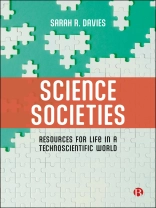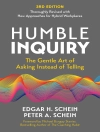What role do science and technology play in society? What is the nature of expert knowledge? What is science’s relation to democracy?
This introduction to science, technology, and society answers these questions, and more, by exploring contemporary research on topics such as expertise, activism, science policy, and innovation. It offers a comprehensive resource for considering the place that science and technology have in contemporary societies, and the roles that they can and should play.
Accessible to a non-specialist audience, it draws on a rich range of cases and examples, from nuclear activism in India to content moderation in Kenya. Framing science as always social, and society as always shaped by science and technology, it asks: what worlds do we want science and technology to bring into being?
Table of Content
1: Introduction: Science Societies
2: Histories and Imaginations
3: The Mutual Shaping of Technoscience and Society
4: Representing Science
5: Public Engagements
6: Knowledge in Crisis
7: Experts and Expertise
8: Science and Governance
9: Technoscience, Power, and Justice
10: Conclusion: Resources for Life in a Technoscientific World;
About the author
Sarah R. Davies is Professor of Technosciences, Materiality and Digital Cultures at the Department of Science and Technology Studies, University of Austria. Her work explores how science and society are co-produced: she has written about hackers and hackerspaces, how scientists experience the conditions of contemporary academia and science communication formats such as festivals and museums.









